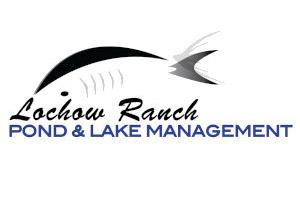Graduate Assistantship: Thermal landscape of rivers
Mississippi State University (State) | https://www.cfr.msstate.edu/wildlife/
Details
Posting:
Application Deadline:
12/01/2025
Published:
11/04/2025
Starting Date:
after 1/1/2026
Ending Date:
after 12/31/2027
Hours per Week:
40 - 50
Salary:
starting at $20,000 per year
Education Required:
Bachelors
Experience Required:
at least 2 years
Tags:
Graduate Opportunities
Description
Project overview and responsibilities:
Water temperature is a key environmental variable in aquatic ecosystems, as cooler water holds more dissolved oxygen, a critical factor for fish survival and metabolism. Understanding spatial variation in the thermal landscape of river systems is crucial for effective fish and river management, as well as mitigating the effects of Climate Change. Riparian and floodplain forests are critical for promoting bank stability, reducing current speed, and storing water during flooding events. Moreover, these forests are critical in providing shade and regulating water temperature. Unfortunately, riparian and floodplain forests in many rivers across North America have been clear-cut for agriculture and other land-use/land-cover changes. This research aims to analyze how forestry practices and land-use/land-cover affect the thermal landscape of rivers in Mississippi.
The student will work with Dr. Sandra Correa, an Associate Professor in the Department of Wildlife, Fisheries, and Aquaculture, and Dr. Padmanava Dash, a Professor in the Department of Geosciences at Mississippi State University (MSU).
Location: This position is primarily based on the MSU campus in Starkville, Mississippi. Ocassional trips to conduct fieldwork in Mississippi are expected in years 1-2.
Duties: To quantify water temperature fluctuations in response to different forestry practices and land-use/land-cover, the student selected for this project will be trained to process remote sensing imagery to characterize the thermal landscape of rivers and assess spatial and multi-year variation in summer water temperature. We expect the selected student to submit grant proposals to leverage funds for fieldwork, travel, and participation in professional conferences. In addition, the student will help prepare manuscripts for peer-reviewed publication, present results at professional conferences, provide support as a teaching assistant, and complete the requirements for an M.S. degree in 2-2.5 years. If the student already has an MS degree, it could also be converted to a Ph.D. position depending on the candidate’s background and goals.
Qualifications: A bachelor's degree in environmental engineering, forest engineering, agricultural engineering, environmental sciences, geosciences, geography, or a related field, and knowledge of remote sensing and satellite imagery analytical tools are required. Technical expertise using ArcGIS Pro, Python, and Google Earth Engine is highly desirable. Excellent oral and written communication skills in English is required. For non-native English speakers, a TOEFL score of 550 PBT or 79 iBT (Internet-Based Test) or an IELTS score of 6.5 (International English Language Testing System) is required for admission to the MSU Graduate program. GRE scores are optional.
Salary and benefits: Funding is available for 2.5 years and may be extended if the student pursues a Ph.D., contingent upon the availability of additional funds. The annual support package includes a US$20,000 stipend, tuition remission ($13,000), and health insurance ($1,700).
Start date: review will begin immediately and close when filled. Start date is January 2026.
To apply: please send an email with the subject line “river thermal landscapes” to Dr. Sandra Correa (sbc257@msstate.edu) and Dr. Padmanava Dash (pd175@msstate.edu) with the following documents: (1) cover letter or statement of purpose describing experiential background, career goals, and project interest; (2) resume; (3) email addresses and phone numbers for three references; (4) copy of college transcripts; (5) TOEFL or IELTS and GRE scores (optional). The successful candidate will be required to submit a formal application and official transcripts to MSU Graduate School.
Water temperature is a key environmental variable in aquatic ecosystems, as cooler water holds more dissolved oxygen, a critical factor for fish survival and metabolism. Understanding spatial variation in the thermal landscape of river systems is crucial for effective fish and river management, as well as mitigating the effects of Climate Change. Riparian and floodplain forests are critical for promoting bank stability, reducing current speed, and storing water during flooding events. Moreover, these forests are critical in providing shade and regulating water temperature. Unfortunately, riparian and floodplain forests in many rivers across North America have been clear-cut for agriculture and other land-use/land-cover changes. This research aims to analyze how forestry practices and land-use/land-cover affect the thermal landscape of rivers in Mississippi.
The student will work with Dr. Sandra Correa, an Associate Professor in the Department of Wildlife, Fisheries, and Aquaculture, and Dr. Padmanava Dash, a Professor in the Department of Geosciences at Mississippi State University (MSU).
Location: This position is primarily based on the MSU campus in Starkville, Mississippi. Ocassional trips to conduct fieldwork in Mississippi are expected in years 1-2.
Duties: To quantify water temperature fluctuations in response to different forestry practices and land-use/land-cover, the student selected for this project will be trained to process remote sensing imagery to characterize the thermal landscape of rivers and assess spatial and multi-year variation in summer water temperature. We expect the selected student to submit grant proposals to leverage funds for fieldwork, travel, and participation in professional conferences. In addition, the student will help prepare manuscripts for peer-reviewed publication, present results at professional conferences, provide support as a teaching assistant, and complete the requirements for an M.S. degree in 2-2.5 years. If the student already has an MS degree, it could also be converted to a Ph.D. position depending on the candidate’s background and goals.
Qualifications: A bachelor's degree in environmental engineering, forest engineering, agricultural engineering, environmental sciences, geosciences, geography, or a related field, and knowledge of remote sensing and satellite imagery analytical tools are required. Technical expertise using ArcGIS Pro, Python, and Google Earth Engine is highly desirable. Excellent oral and written communication skills in English is required. For non-native English speakers, a TOEFL score of 550 PBT or 79 iBT (Internet-Based Test) or an IELTS score of 6.5 (International English Language Testing System) is required for admission to the MSU Graduate program. GRE scores are optional.
Salary and benefits: Funding is available for 2.5 years and may be extended if the student pursues a Ph.D., contingent upon the availability of additional funds. The annual support package includes a US$20,000 stipend, tuition remission ($13,000), and health insurance ($1,700).
Start date: review will begin immediately and close when filled. Start date is January 2026.
To apply: please send an email with the subject line “river thermal landscapes” to Dr. Sandra Correa (sbc257@msstate.edu) and Dr. Padmanava Dash (pd175@msstate.edu) with the following documents: (1) cover letter or statement of purpose describing experiential background, career goals, and project interest; (2) resume; (3) email addresses and phone numbers for three references; (4) copy of college transcripts; (5) TOEFL or IELTS and GRE scores (optional). The successful candidate will be required to submit a formal application and official transcripts to MSU Graduate School.
Contact
Dr. Sandra Correa
sbc257@msstate.edu (preferred contact method)






